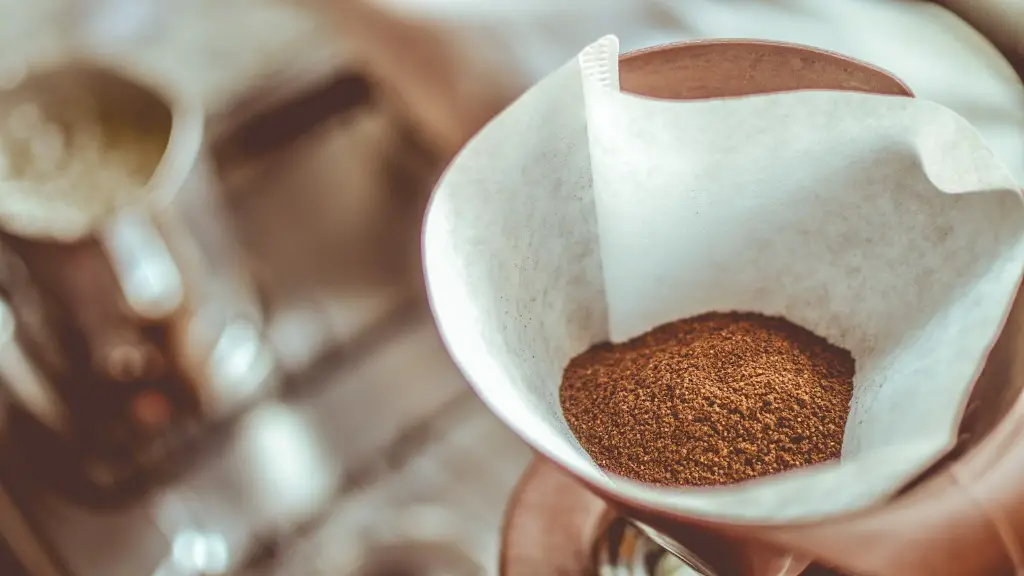Overview of Drinks Consumed By Pregnant Women
Pregnant women are advised to take extra care of their health, as they face greater risks of developing diseases, particularly during the later stages of pregnancy. One important factor that affects health during pregnancy is diet, including the type of drinks women should consume. Coffee is one of the most popular drinks among females, but there is a debate about whether it is suitable for pregnant women or not.
To understand the issue better, an overview of the drinks pregnant women consume is needed. According to data from the Centers for Disease Control and Prevention, 60 percent of pregnant women drink water, 40 percent drink milk, 34 percent drink tea, 24 percent drink fruit juices, and 22 percent drink coffee. Another study found that coffee is actually the third most commonly consumed beverage, with tea and milk being higher.
Benefits and Risks of Drinking Coffee During Pregnancy
Caffeinated coffee can provide many health benefits, including increased alertness and improved concentration. Pregnant women may find it helpful in managing stress and fatigue during pregnancy. However, drinking too much coffee can potentially lead to adverse health effects. Excessive caffeine consumption has been linked to an increased risk of miscarriage and low birth weight.
Although the research is mixed, other studies have suggested that coffee consumption can have positive health benefits during pregnancy. These benefits include a reduced risk of gestational diabetes, reduced risk of depression, and a protective effect against preeclampsia. Nevertheless, it is important to note that these benefits may not necessarily be a direct result of coffee consumption, but instead may be part of a broader lifestyle.
Given the mixed evidence, it is important for pregnant women to be aware of the potential risks and benefits of drinking coffee. To ensure that pregnant women do not increase their risk of health problems, they should consume coffee in moderation, limiting their consumption to no more than two small cups per day. Additionally, pregnant women should determine their individual tolerance for caffeine, as some individuals may be more sensitive to its effects than others.
Concerns about the Composition of Coffee
Another concern for pregnant women is the composition of coffee. Coffee contains a variety of substances, including caffeine, chlorogenic acids, polyphenols, polysaccharides, and minerals. Caffeine is the most notable and can have both beneficial and adverse effects depending on the amount consumed. The other substances are considered to be generally safe, although there is limited research on the safety of these compounds during pregnancy.
The best way to ensure that you are consuming safe levels of these compounds is to opt for organic, high-quality coffee grinds that are free of pesticides and chemical fertilizers. Additionally, it can be beneficial to opt for darker roasts, as they tend to contain less caffeine and more antioxidants. You should also limit the amount of sugar, sweeteners, creamers, and flavored syrups that are added to your coffee. All of these can add extra calories and sugar to your diet, which can be detrimental to your health and your baby’s health.
Alternatives to Drinking Coffee During Pregnancy
If you decide to avoid caffeine during pregnancy, there are many alternatives that provide the same benefits as coffee. These include herbal teas, naturally decaffeinated coffee, green tea, and matcha tea. Additionally, there are also some caffeine-free drinks available, such as root beer, ginseng tea, and various fruit juices.
Another alternative is to switch to low-caffeine coffee options such as Cold Brew or Espresso. These coffees contain significantly less caffeine than traditional brewed coffee, yet still provide the same flavor and aroma. Additionally, pregnant women can opt for caffeine-free options such as chicory coffee or dandelion root coffee.
Finding a Healthy Balance During Pregnancy
In conclusion, pregnant women should take extra precautions when it comes to their health and dietary choices. Although there is some evidence of potential health benefits associated with drinking coffee during pregnancy, it is important to be aware of the risks as well. Women should consult with their healthcare provider before consuming coffee and other caffeinated drinks, and strive to find a healthy balance.
Coffee Alternatives
If pregnant women choose to avoid coffee due to its potential risks, there are plenty of alternatives to suit their individual preferences. Herbal teas, decaffeinated coffee, green tea, and other caffeine-free drinks are some of the options available. Nondairy creamer, flavored syrups, and low-caffeine options such as Cold Brew and Espresso can also be considered.
Using Coffee with Moderation
Pregnant women should understand that coffee, like any other food or drink, should be consumed in moderation. Drinking too much coffee can potentially increase health risks for both the mother and the baby. Women should limit their coffee consumption to no more than two small cups per day, and choose organic and high-quality coffee grinds.
Potential Benefits of Drinking Coffee During Pregnancy
Although evidence is mixed, studies have suggested that coffee consumption during pregnancy can provide some positive health benefits. These include reduced risk of gestational diabetes, reduced risk of depression, and a protective effect against preeclampsia. However, these potential benefits should not be seen as the main reason to drink coffee during pregnancy.
Types of Coffee to Consider
When considering coffee consumption during pregnancy, women should opt for organic, high-quality coffee grinds that are free of pesticides and chemical fertilizers. Darker roasts tend to contain fewer caffeine and more antioxidants, which can be beneficial. Additionally, you should limit added sugar, sweeteners, creamers, and flavored syrups.



